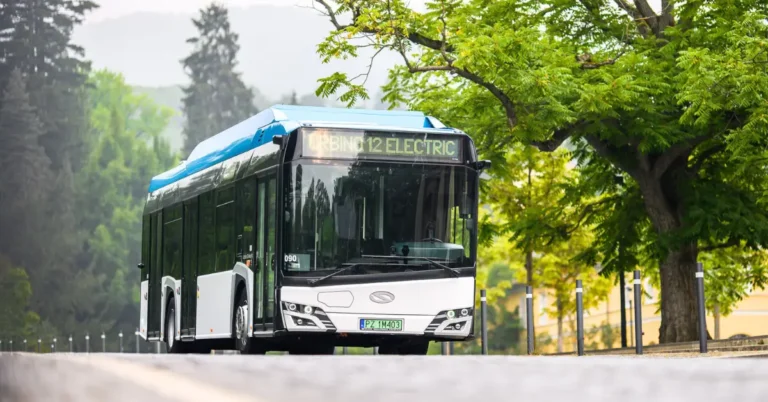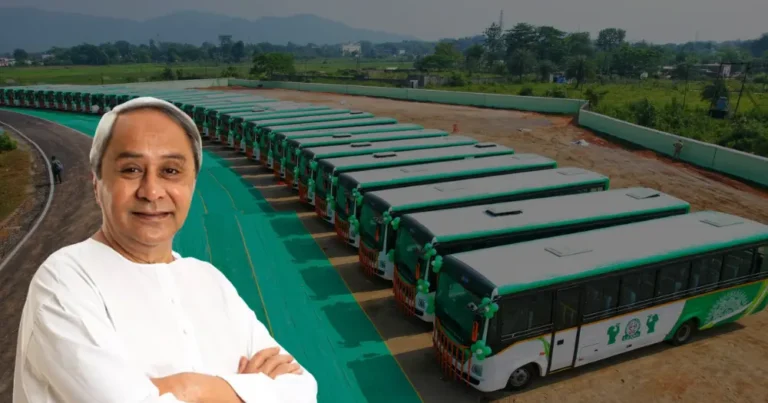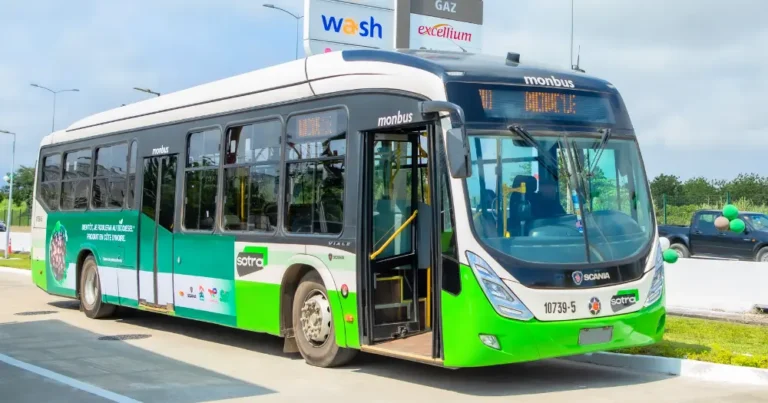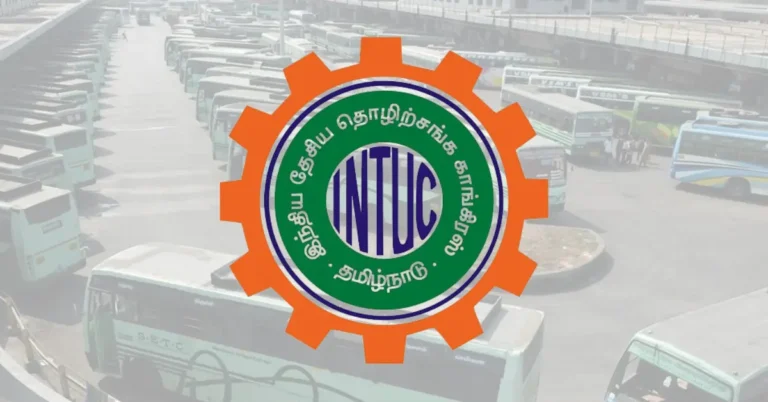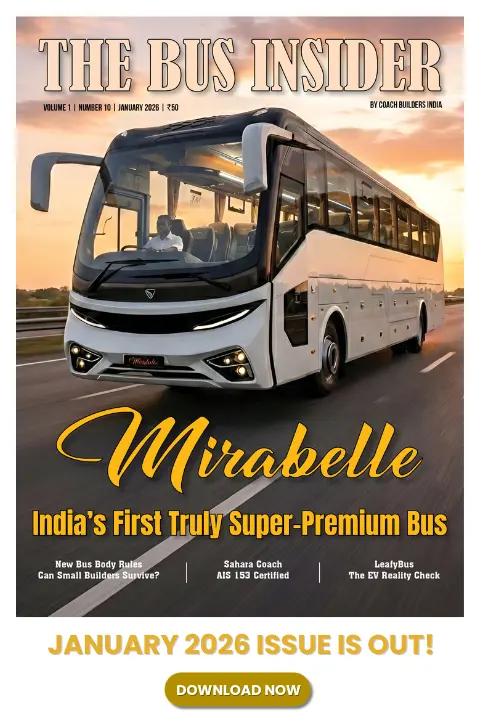Analysis of Delhi’s Bus Fleet: Percentage of Electric Buses in Delhi
In its ongoing efforts to combat pollution and promote sustainable urban mobility, Delhi has been expanding its eco-friendly public transportation network. On July 30, the AAP government added 320 new electric buses to Delhi’s public transportation system. With this addition, the total number of electric buses in Delhi rose to 1,970, making it the Indian city with the most electric buses.
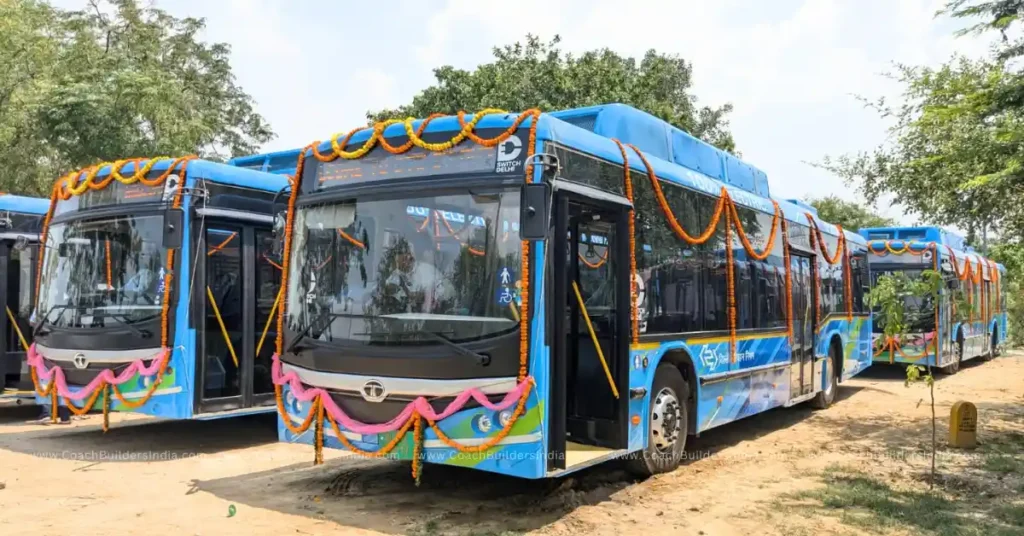
Delhi has been grappling with deteriorating AQI levels yearly, prompting urgent measures to improve air quality. Among other measures, the city has been focusing on increasing its share of zero-emission public transport.
Over the past two years, Delhi has consistently expanded its electric bus fleet.
The city has made significant strides by inducting large batches, such as the record-breaking addition of 500 electric buses, while also maintaining a steady influx of 80 to 100 buses each month.
The most recent addition was the induction of 320 electric buses on July 30, 2024. Transport Minister Kailash Gahlot stated that Delhi now has the highest number of electric buses in the country.
Since the induction of its first fleet of electric buses in May 2022, the ruling AAP government has successfully electrified 25% of Delhi’s total bus fleet.
As of July 2024, Delhi’s bus fleet comprises 7,638 vehicles, of which 1,970 are electric buses.
Operational Model of Delhi’s Bus Fleet
Delhi operates its bus transport through two primary mediums:
- Transport Corporation (DTC)
- Delhi Integrated Multi-Modal Transit System (DIMTS)
Total Number of Vehicles in Delhi’s Bus Fleet
| Fleet Type | Total Buses | CNG Buses | Electric Buses |
|---|---|---|---|
| DTC Buses | 4,536 | 2,966 | 1,570 |
| Delhi Integrated Multi-Modal Transit System (DIMTS) | 3,147 | 2,747 | 400 |
According to the Economic Survey 2023-24, the daily average passenger ridership in DTC buses was 2.5 million, and in cluster buses, it was 1.6 million during 2022-23.
Electric Buses in Delhi
The journey of electric buses in Delhi began with the arrival of the first prototype for the Delhi Transport Corporation (DTC) in January 2022. The bus was manufactured by JBM Auto. This marked the city’s initial foray into sustainable public transport.
By December 14, 2022, Delhi had significantly expanded its electric bus fleet with the addition of 500 more buses.
Continuing this momentum, 350 additional electric buses were inaugurated on February 15, 2024, bringing the total to 1,650.
On July 30, the Delhi government added another 320 buses, bringing the total number of electric buses in Delhi to 1,970.
As of August, 2024, electric buses comprise 25% of Delhi’s total bus fleet, establishing Delhi as a national leader in electric bus deployment and ranking third worldwide in fleet size.
Innovative Public Transport Initiatives
The national capital has also been experimenting with novel public transport ideas, notably the Mohalla Bus Scheme and the Circulator Bus Service.
Both projects aim to enhance local transport services by introducing nine-metre-long electric buses that are well-suited for navigating narrow roads and congested areas where larger buses struggle to operate efficiently.
These initiatives not only improve connectivity in less accessible areas but also contribute to the city’s ongoing efforts to promote sustainable and zero-emission transportation.
Mohalla Bus Scheme
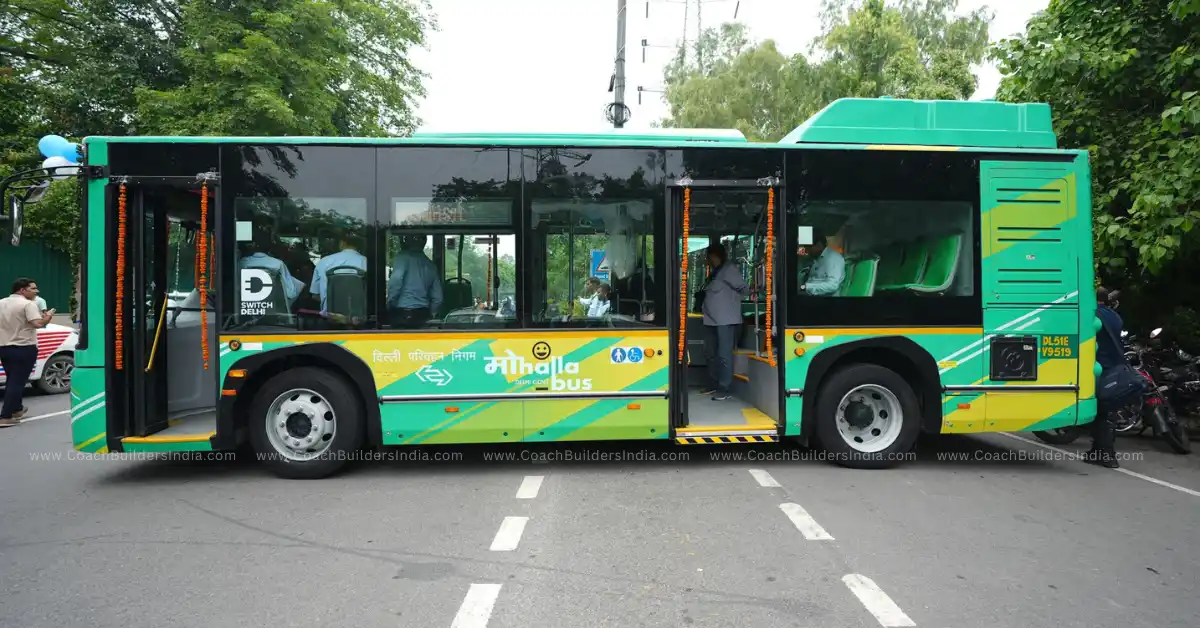
The Aam Aadmi Party government unveiled the Mohalla Bus Service in April 2023, with trial runs commencing on July 15, 2024. The trials began on two routes: Majlis Park to Pradhan Enclave and Akshardham to Mayur Vihar Phase III.
These nine-metre-long buses are specifically designed to enhance last-mile connectivity, operating in areas where the standard 12-metre buses cannot efficiently serve.
“In these areas, the routes will connect important bus terminals, commercial centres, Metro stations, schools, and hospitals,” said Transport Minister Kailash Gahlot.
The Mohalla Bus Scheme will only operate electric buses, further boosting Delhi’s bus fleet and contributing to sustainable urban mobility.
While the trial phase has concluded, the Delhi government is finalizing the routes for this service. For the first time, the government will leverage Big Data analytics, artificial intelligence, and expertise from IIT-Delhi to finalize the routes of its ambitious Mohalla Bus initiative.
This innovative approach underscores Delhi’s commitment to improving public transport through advanced technology and strategic planning, thereby reinforcing the city’s leading position in the adoption of electric buses in Delhi.
Circulator Bus Scheme
In addition to the Mohalla Bus Service, the Delhi government launched another innovative project, the DTC Circulator Bus Service, on July 24, 2024. The trial phase for this service is underway in two key locations: Dwarka More and Vasant Vihar.
The Circulator Bus Service is designed to provide convenient and efficient transportation within specific areas. These buses will operate on routes that start and end at the same location, ensuring seamless connectivity to key destinations such as metro stations, educational institutions, and residential areas.
This project aims to improve local transport services and further enhance the efficiency and accessibility of Delhi’s bus fleet.
जन-केंद्रित सरकार वह होती है जो जनता की बात सुनती है और उस पर अमल करती है।
— Kailash Gahlot (@kgahlot) July 23, 2024
निवासियों की मांगों को पूरा करते हुए और कनेक्टिविटी में सुधार के लिए, आज हमने द्वारका सब सिटी में नए रूट का ट्रायल शुरू किया है।
23 किलोमीटर लंबा 'द्वारका सर्कुलेटर सेवा' द्वारका के प्रमुख सेक्टरों और… pic.twitter.com/kIPmnym88L
Bus Depot Electrification
In preparation for the future expansion of its electric bus fleet, the Delhi government is undertaking significant depot electrification initiatives.
Nearly 60 bus depots are being electrified to accommodate the increasing number of electric buses in Delhi.
Currently, 18 depots are fully electrified, ensuring that they can efficiently support the existing fleet.
The government is investing over ₹1,500 crores in this endeavor, highlighting its commitment to sustainable urban mobility and the successful integration of electric buses into Delhi’s bus fleet.
Budget Allocation and Future Plans
Delhi is committed to expanding its bus fleet with a strong focus on electric buses. The current budget has been prepared with this objective in mind, reflecting the city’s dedication to sustainable urban mobility.
The Delhi government has allocated Rs 510 crore for electric buses in its budget for 2024-25. Finance Minister Atishi, while presenting her first budget, highlighted the importance of this allocation.
“Delhi’s bus fleet has 7,582 buses currently, used by more than 41 lakh passengers daily. To expand this fleet further, a concession agreement for the engagement of 1,900 new e-buses has been signed,” Atishi said while presenting the budget in March 2024.
The budget also highlights that to enhance last-mile connectivity, 2,808 e-buses will be purchased in 2024-25 under the Mohalla Bus Scheme. Of these, 1,040 will be operated by the DTC and the rest by DIMTS, the minister said.
Overall, by 2025, Delhi aims to have a total of 10,480 buses, with 80% (8,280 buses) being electric, saving 467,000 tonnes of CO2 annually.
Delhi’s efforts to combat air pollution through the expansion of its electric bus fleet have set a benchmark for other cities. The continued investment in electric buses and innovative transport solutions underscores the city’s commitment to a cleaner and more efficient public transport system.
With the highest number of electric buses in the country and a comprehensive operational model, Delhi is poised to lead the transition to sustainable urban mobility in India.
Catch the latest Bus Industry updates, Exclusive Interviews, Bus News, and International Bus News on Coach Builders India. Download the latest issue of the The Bus Insider magazine for more insights.


